Women's Pregnancy Research Centre
The blueprint for a healthy life is largely determined by events which take place in the uterus before we are even born. The relationship between a mother and her baby is quite literally, therefore, a partnership for life.
Although most women enjoy a trouble free pregnancy and delivery, some women may experience complications, such as miscarriage, preterm labour, high blood pressure, poor fetal growth, diabetes an difficult or prolonged labour. Unfortunately, we do not always know what causes many of these complications or how best to prevent or treat them.
Women's Pregnancy Research Centre
The focus of the Women's Pregnancy Research Centre (WPRC) is to better understand the causes of pregnancy disorders which compromise the health of mothers and their babies. We are extremely fortunate to be able to undertake our work in a maternity hospital of the size of the Women’s, which cares for more than 7,000 pregnant women each year.
Many of these women have pregnancies troubled by complications such as miscarriage, pre-eclampsia, fetal growth restriction, gestational diabetes and preterm labour.
These common pregnancy complications create significant emotional, social and economic costs within our community. Any decline in the incidence or severity of these pregnancy complications significantly reduces these costs. The principal beneficiaries of the outcomes of the research we undertake are mothers and their babies.
Our work on human pregnancy and its disorders ranges from basic biomedical laboratory research through to clinical studies, treatment trials and public health initiatives.
Our mission is “to apply contemporary research techniques to the investigation of clinically important problems in maternal and fetal medicine and related fields, promulgate the findings of such investigations and to use such findings as the basis for evidence-based clinical practice”.
-
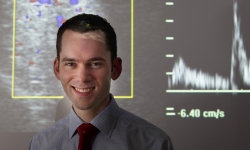 Achievements & News
Achievements & NewsThe Women's Pregnancy Research Centre has had many significant achievements since it was established in 1993.
Learn more -
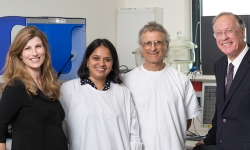 Themes
ThemesThe Women's Pregnancy Research Centre's research activities can be divided into ten themes, each of which is central to improving the outcomes for mothers and babies with pregnancy complications.
Learn more -
Publications
Key scientific publications from the Women's Pregnancy Research Centre.
Learn more -
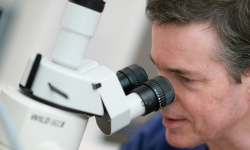 Our people - the Women’s Pregnancy Research Centre
Our people - the Women’s Pregnancy Research CentreMeet the Women's Pregnancy Research Centre team.
Learn more -
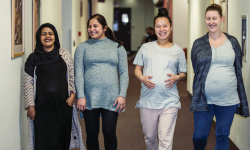 Patient participation
Patient participationWe invite women who have a trouble-free pregnancy and women who have complicated pregnancies to participate in our studies so that we can compare the two groups. This will greatly assist us to help women who have complicated pregnancies in the future.
Learn more -
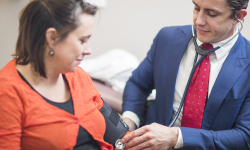 Pregnancy research - Highlights
Pregnancy research - HighlightsThe centre’s work on pregnancy and its disorders is all designed to support evidence based clinical practice
Learn more -
RWH PRC 30th Anniversary Conference Learn more